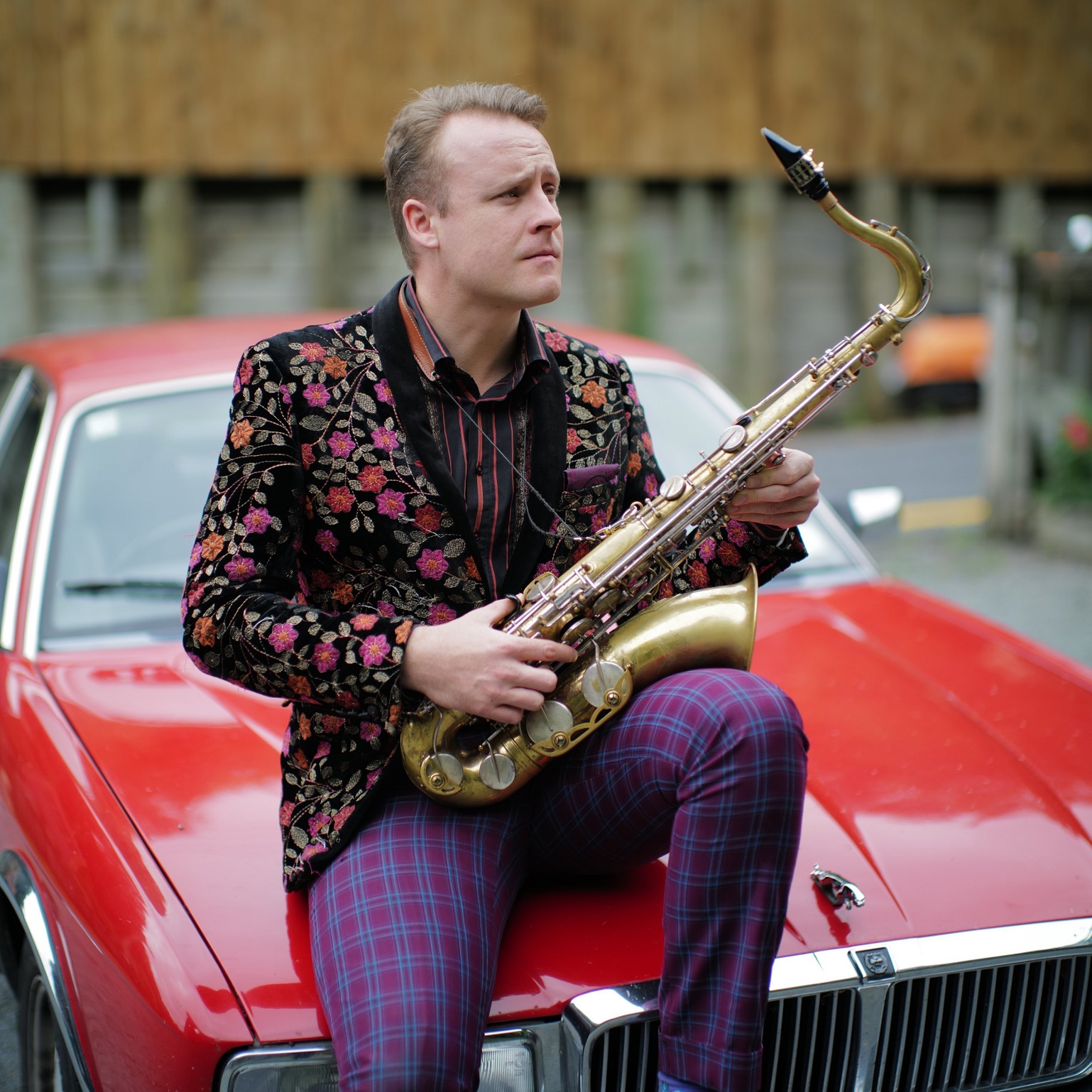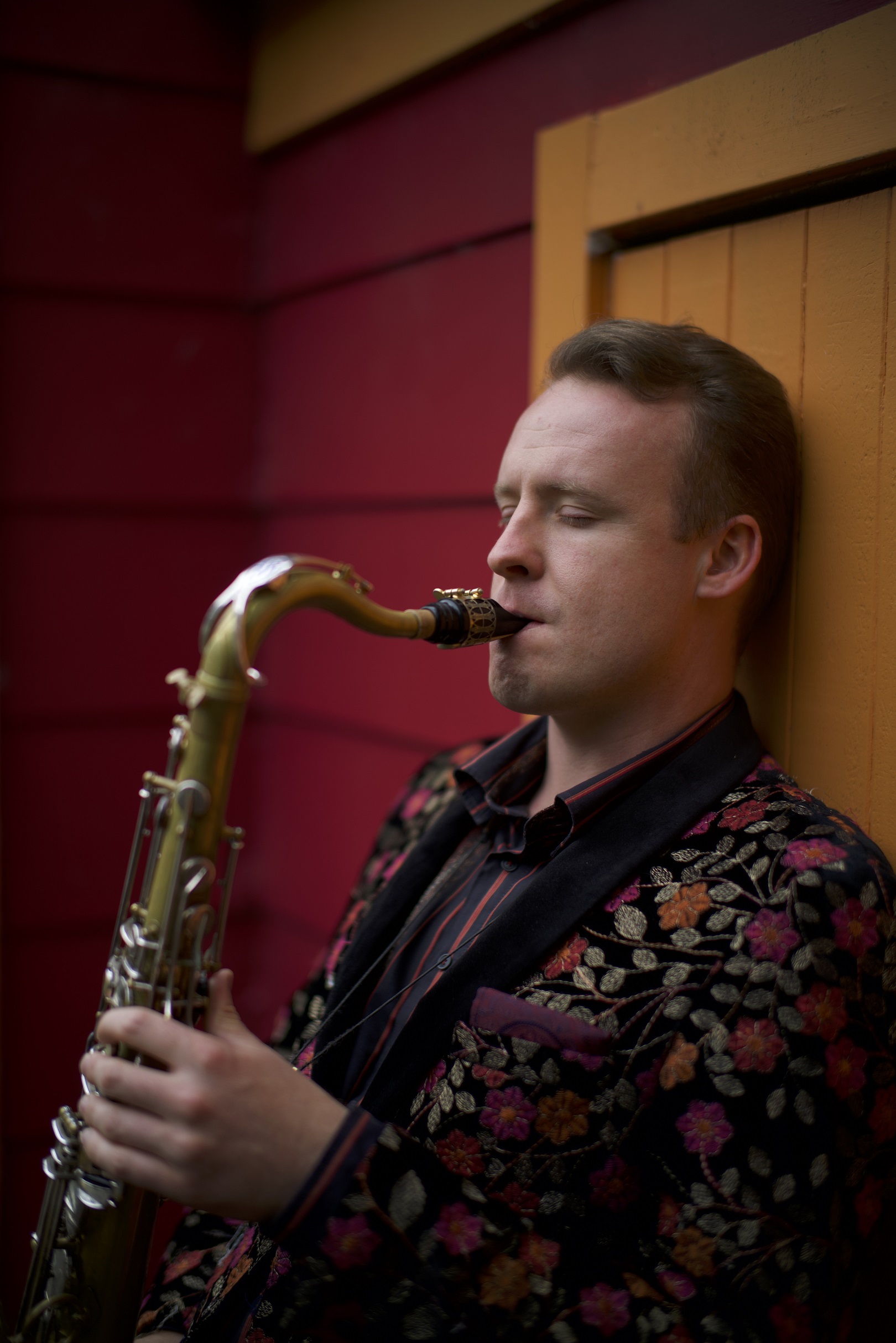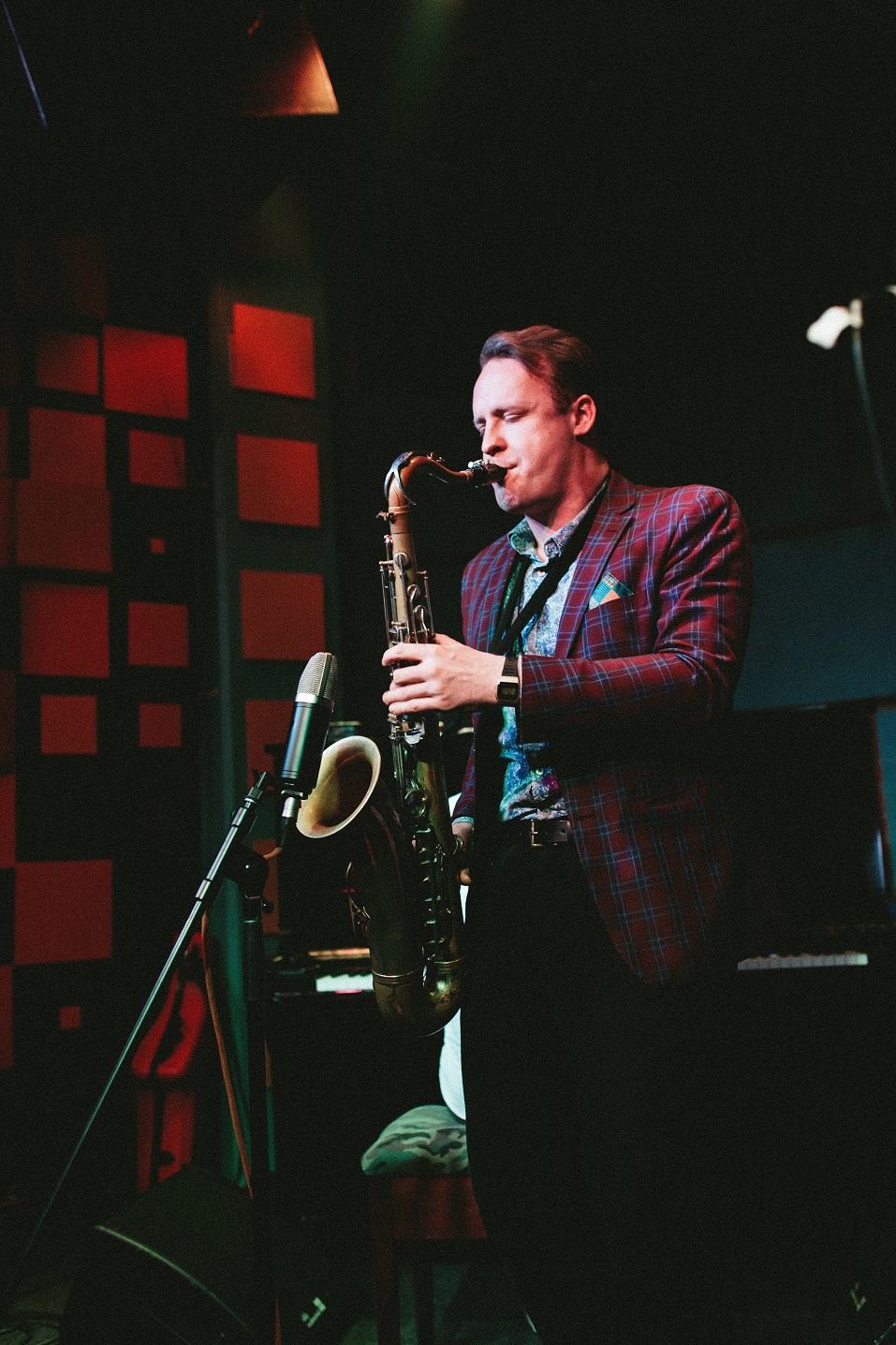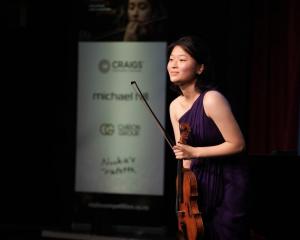
Variety is the spice of life, so the saying goes. And Wellington musician Oscar Laven embraces variety.
"Being a musician these days, you need to."
Whether it is composing or playing with the Dunedin Symphony Orchestra, the Air Force Band, The Roger Fox Big Band, The Topp Twins, Placido Domingo, a drum and bass band or a jazz group, Laven does it all.
Laven’s love of music comes from his parents, both "excellent" musicians who play in the folk scene.
"I was surrounded by various types of music from a young age but I didn’t really play a lot."
As a teenager growing up in Tauranga though he realised music was fun and began to try a whole "bunch of stuff" at the same time.
"My dad had stuff lying around. I’d pick up the horn and just started getting into lots of blues and jazz records and classical music as well."
He started playing professionally as a teenager with a covers band and with the Dunedin Symphony Orchestra on the bassoon.
"There are not that many who play the bassoon so it’s quite good for getting gigs as a teenager."
The trips to Dunedin were always a lot of fun as he had a lot of time to explore and walk around the city as the orchestra rehearsed in the evening.
"That was my other life playing classical music. We played all sorts of things over the years."
As he was enjoying playing he decided to move to Wellington to study music.
"I was already playing a lot by the time I finished my degree so just migrated into playing professionally. I’ve always been teaching, too."
Laven considers his main instrument to be the tenor saxophone.
"I’ve always loved all the ’50s and ’60s Blue Note jazz records, you know, Robbie Coltrane, Miles Davis. I’ve always had a deep love for that music so I naturally gravitated toward the sax."
However, he classes himself as a multi-instrumentalist so he plays whatever is needed. He recently played the oboe with Orchestra Wellington.

"There are a lot of transferable skills and the more adept or fit you are at a certain thing, it helps with another. For example, you can play the clarinet quite easily after playing the saxophone or other wind instrument but if you try and get behind a drum kit or a piano, it doesn’t help all that much.
"It all helps your music holistically as well."
Laven enjoys the challenge of trying a new instrument and often will swap instruments with friends and have a go.
"Its fun to do something you don’t normally do. When you get to have a crack at playing a different instrument or musical style you don’t get bogged down with all your normal worries of the thing you focus on."
He plays trumpet a lot in a friend’s covers band with a horns section.
"Sometimes I’ll fill in playing Earth Wind and Fire and Bruno Mars and all of that — that’s different again and is a lot of fun and if you can get paid for it, all the better."
Laven is bringing double bass player Patrick Bleakley with him to Dunedin to perform some of his original compositions and a selection of standards with local players Bill Martin and Carl Woodward at Hanover Hall.
"A bit of a meeting of Dunedin and Wellington people — part of beauty of jazz, playing this music, is that it is sort of a universal language that we all speak some variant of so we can come play together and make something new."
As he has just released at the Wellington Jazz Festival a debut album as a bandleader Questions in Red, the quartet will also be playing some of its music.
"I’ve played on a lot of other people’s albums but it feels different when it’s got your name on it and you’re having to pay for it."
He describes it as sounding like a ’60s Blue Note record but has his own take on it.
"I end up writing fairly eccentrically so there are a lot of different styles bouncing around a little bit. It’s hectic but we had a lot of fun playing it and I think you can feel that energy in there. It’s slightly eccentric acoustic jazz."
Appreciative of Martin’s work in enabling Wellington musicians to come south to play, Laven says it’s great to be able to travel to Dunedin to play with others who are all working on the same stuff yet have not played together before.
"A bit of building some community bridges."
He has found the music scene in general in New Zealand at the moment is "beautiful" with a lot of supportive people and a non-competitive environment.
"That Jazz scene, not only in Wellington but Dunedin too, there is a whole lot of growth with a lot of young people into it now. It doesn’t feel like we’re playing to three old people in a bar on a Sunday afternoon any more."
After Covid, jazz recovered well, being one of the first genres to start doing gigs again.

He puts the growing interest in the scene down to people having more of their own music taste these days due to being able to access so much diverse music in comparison to when he was growing up and the "Top 40" dominated people’s listening habits.
"We’re not in the MTV generation any more. Everyone has their own customised, streaming playlist. Especially young people, they’re the native internet generation, they know how to search for their own music. I think there is a lot more importance placed on being individualistic socially and being able to express themselves and a lot of people are doing that now with their music."
Laven’s inspiration comes from listening to old records but also to the many people releasing their own music. He encourages music lovers to search for music on Bandcamp.
"When you get a whole lot of smaller stuff that’s not just recommended to you by the big algorithm on Spotify or U-Tube, it’s a lot more individual artists or cities. Sometimes it’s good to search by country or city and see what is coming out in Detroit or coming out in Auckland this year. It’s really fun.
"Anyone interested in jazz should do it. No-one’s on big labels any more, a lot of it is self-produced or on small producers. Like my producer Thick Records."
Jazz has found itself in a different place now, like most music genres, where being signed by a big label is not how it happens any more, he says.
People have the technology at home and can self-produce.
"It’s a different game. On the bright side everyone can do what they want to do. You don’t have to play in a certain way that a label wants you to."
Technology also means it is a lot easier for people overseas to be listening to New Zealand music, just was we listen to theirs, he says.
"This album, I’ve been pleasantly surprised I’ve been getting radio play in Italy, in Ireland and the UK and Atlanta. Some radio station in Austin is playing a song from my album — isn’t that wild. That stuff never used to happen."
In London, Jazz News reviewer Nathan Wyde writes that Laven’s "improvisations consistently reveal an immersion in the tradition balanced with a fearless, joyful and searching personality of his own”.
As well as performing, Laven has recently started teaching at Wellington School of Music where he is finding students a lot more "on to it" than his own generation.
"A lot of us had never played or heard jazz or classical before enrolling in a university programme because there were not the same scenes. They’ve been checking things out on the internet since before they were at high school, they’re all playing fantastically and have really nice attitudes as well. "
He appreciates the role he has in helping the next generation of jazz musicians.
"If you can make it any easier or less confusing, especially as improvised music is very self-driven, you have to drive it from your own soul. The hard thing is figuring out what they want to do. So if you can guide someone to figure that out, they can waste less time finding it and more time doing it."
To see:
Oscar Laven Quartet, Dunedin Jazz Club, Hanover Hall, April 15, 7.30pm












